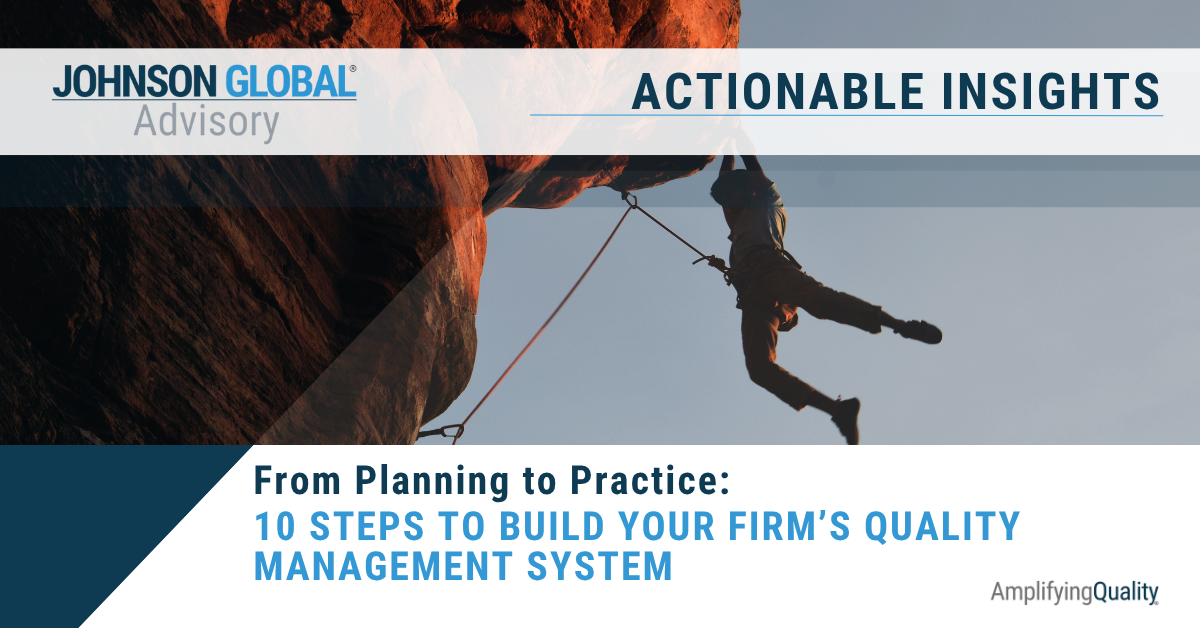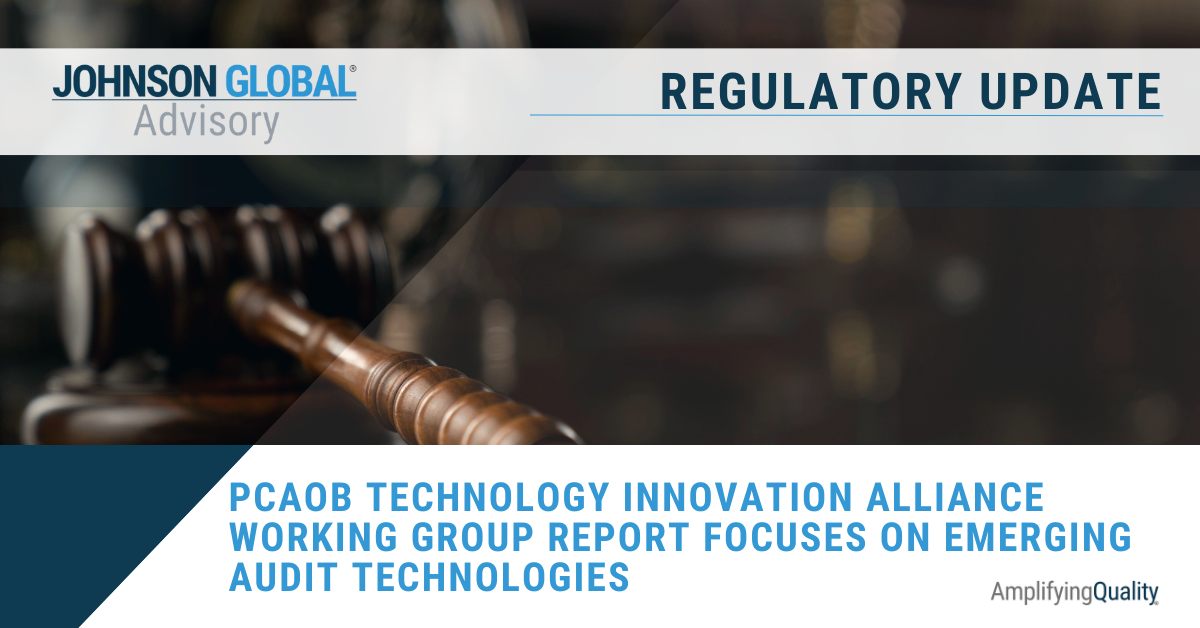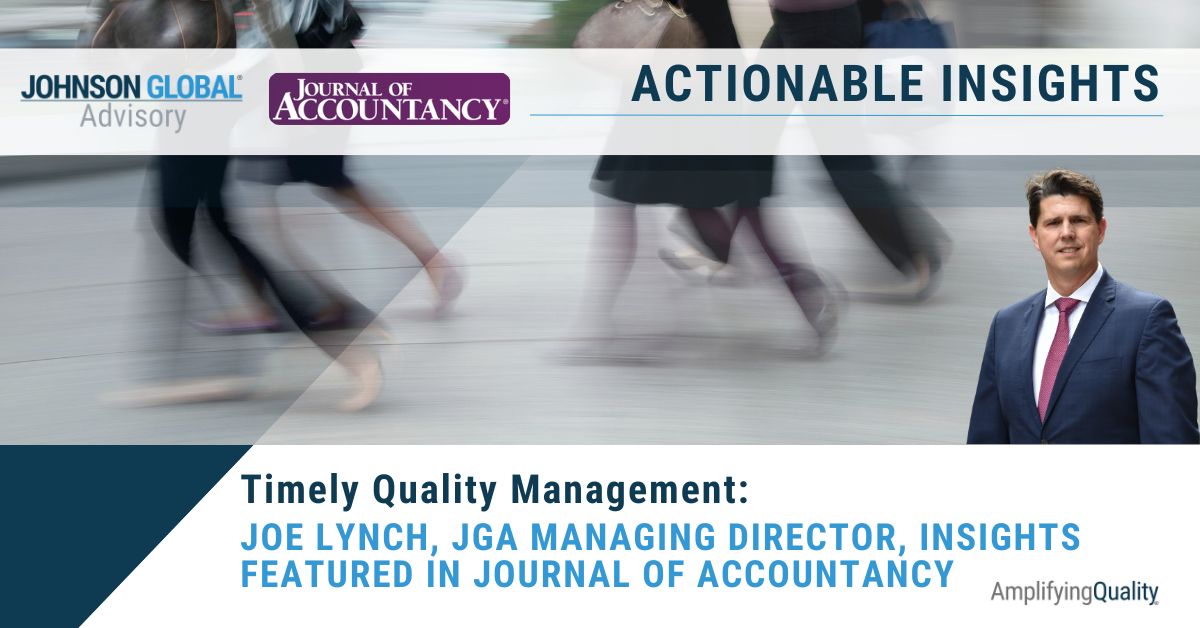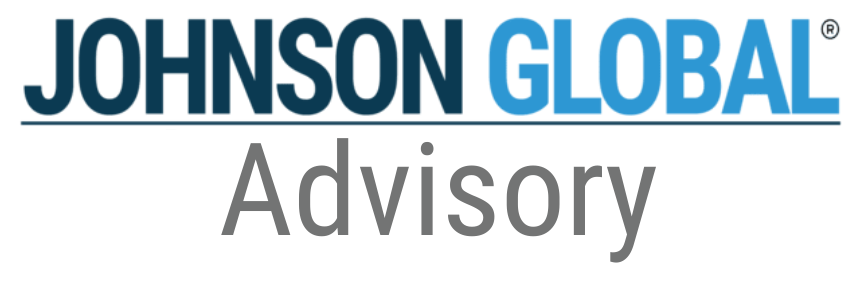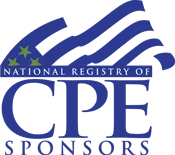Transformers: The Ever-Evolving Role of the Auditor

Growing up, I remember the golden age of transformers, these sleek cars that then morphed into incredible fighting machines. Of course, those cartoon childhood memories soon became epic Hollywood action movies. Though perhaps not quite as exciting as Optimus Prime or Bumblebee, as new legislation is passed and as the world is transformed by (actual, not fantastical) technology, it seems every year that the role of the auditor morphs. Auditors are required to have more specialized knowledge about specific emerging industries. At the same time, the FASB and the PCAOB are issuing new standards in the industry while the SEC continues to expand the responsibilities and expectations of the auditor.
As technology advances at exponential rates, its development is impacting auditors in two distinct manners. First is the emergence of unique industries. For instance, blockchain and digital assets have created an entirely new industry; there are companies whose sole purpose is to mine cryptocurrencies. To audit these companies, auditors need to master (or at least thoroughly comprehend) these technologies so as to fully understand the entity and its environment. While many auditors can become conversational in a topic, mastery requires a deeper level of understanding. For instance, understanding the basics of blockchain technology and how it functions is not the same as understanding the mechanics of how crypto currencies are mined. This mastery is necessary to properly assess the risks and thereby design a risk-based audit.
Technology is also revolutionizing how audits are designed and performed. As clients become more automated, with almost all data being maintained within information systems, auditors now need to understand the entire flow of transactions to identify the “what could go wrongs” and thus identify the appropriate controls to address the risks. Given the significance of completeness and accuracy of data, most of which is now generated from IT systems, technology is forcing more and more audits to be designed and executed with a controls reliance approach. The day may come when all audits will be integrated audits because the pervasiveness of information technology within clients’ financial reporting makes a non-integrated audit impractical or impossible. Technology is also being used by auditors to make audits more efficient through the use of systems to automate certain audit processes (such as reconciliations) or to aggregate information and use data analytics to identify anomalies, honing in on more risky accounts and transactions. All of this means that auditors need to have a strong understanding of IT systems including the risks arising from the use of IT, both at the client, as well as internally within a firm’s own technology.
Given some of the efficiency gained from the use of IT in the audits, auditors are now focusing on more complex audit and accounting areas, such as subjective management estimates. Across all industries, management is acknowledging the importance of developing the more creative/critical thinking side of employees, knowing that technology and AI will help supplement the non-judgmental and more routine aspects of any job, but especially within audit and accounting. Job security for an auditor lies in the fact that AI will never truly capture human professional judgment (at least not any time in the near future) and so the ability to think critically and apply judgment in planning, execution and review of an audit will remain a specialized skillset that is critical for auditors.
Outside of IT, both the accounting and the audit industries have had significant changes due to the volume of new guidance. Within the accounting realm, the FASB has released several significant new standards that have taken effect in the past couple years, including changes to accounting for revenue recognition, leases, and the allowance for credit losses. These were significant changes that involved multiple taskforces and years of preparation for the adoption of these standards. In tandem with the accounting changes, the PCAOB released several new standards such as new reporting requirements including critical audit matters, or revised standards around auditing estimates and use of specialists. And currently, considering the new quality management standards taking effect over the next couple years, the industry has been experiencing significant change, adding to the ever-evolving role and expectations of the auditor.
Finally, over the past couple years, the SEC has repeatedly emphasized the role of the auditor as the gatekeeper of financial information and recent actions and sanctions evidence the SEC’s commitment to holding the auditor accountable for quality audits. The PCAOB has also concluded on a number of enforcement cases, further holding auditors accountable in the industry. In 2002, Sarbanes-Oxley expanded the role of the auditor to include opining on internal controls over financial reporting. Then in 2010, the Dodd-Frank Act expanded the role of the PCAOB to include oversight over broker-dealers (both public and private). And now, there is increasing discussion around the role of the auditor especially with regards to reporting over compliance with environmental and social governance standards.
Perhaps most simply stated, ever-increasingly, the role of the auditor is expanding and as a result, auditors are having to become increasingly more competent and knowledgeable. As if that wasn’t enough, the industry is being held to higher expectations and competencies all the while struggling to find and hire the right resources. Considering the current labor market and the future trends in the audit and accounting industry, audit firms need to begin investing more into their resources. As the new quality management standards explicitly call out, resources can be broken down into three main components: human resources, technological resources, and intellectual resources.
Human Resources
When considering human resources, it starts with hiring the right resources with the right education and skillset. Once hired, firms need to focus on retaining the right resources. Retention helps provide cumulative audit knowledge and experience with both clients and with the firm overall. Experience is generally the best way to improve as an auditor; said differently, practice makes perfect. In the current labor market, firms need to consider the various ways of improving retention. While money speaks, job satisfaction is hugely important and that comprises of much more than just salary and benefits. I’m an auditor, so I’m not here to comment on the best practices for retention, but firms need to invest in the resources to better understand what drives employee engagement and ensure the firm can deliver so as to retain top talent.
While retention will help build cumulative audit knowledge and experience, it’s also important for firms to continue to develop their human resources. This means training and educational opportunities. While webinars and online courses may fulfill the CPE requirements for CPA licensing, firms should consider broader training opportunities such as industry conferences and specialized certifications that will truly develop subject matter expertise whether related to specific industries, accounting or audit concepts, or broaden knowledge related to pervasive concepts such as fraud or information technology.
Technological Resources
In addition to investing in human resources, firms need to consider their investments in technological resources. This includes software audit tools and technology, such as audit programs (e.g. cash reconciliations), documentation tools (e.g. automated database workflows), and/or data analytics. These investments will help engagement teams perform more efficient and higher quality audits. Though easy to accept this academically, technology requires a large investment of both money and time. And it requires foresight, looking at emerging trends and thinking outside the box, continually identifying ways to modify and/or automate the audit process. For the larger firms, we’ve seen huge investments in developing in-house technology and tools, but this doesn’t mean the mid-tier and smaller firms can’t also invest in technology. Software services are emerging everywhere and becoming much more affordable, allowing firms of any size to access and use technology to transform audits.
Intellectual Resources
The final component for resources is the concept of intellectual resources. This incorporates various considerations from providing access to subject matter experts, knowledge resources such as accounting resource guides and/or audit programs, methodologies and tools that help engagement teams execute quality audits. Similar to technology, there is a cost in developing intellectual resources. Some of the larger firms develop these resources in-house, but for smaller firms, there are still ways of having access to intellectual resources. Firms can look to alliances and networks to help assist in the development and/or sharing/pooling of intellectual resources. For instance, we’ve worked with a European firm that leveraged its US alliance to consult with audit experts in US GAAP and US GAAS. For smaller firms who may not be connected with an alliance, there are also industry publications and guides such as the AICPA audit guides that provide extensive knowledge and insight. Finally, we’ve worked with numerous firms to help provide intellectual guidance, whether acting as an external “national office” helping with consultations and monitoring programs and overall audit quality initiatives, and/or simply designing audit programs and methodologies for one-off hot topics. The point is, you don’t have to go it alone. There is an abundance of resources available in the market; firms simply need to make the commitment to investing time and money into these resources.
Key Takeaways
• Providing more technical training to auditors, including training about information technology, complex audit areas, such as estimates, and industry knowledge for emerging sectors, will better equip engagement teams to perform quality audits.
• Hiring the right resources and retaining those resources helps build cumulative knowledge and experience both with specific clients as well as with the firm and the audit industry generally.
• Investing in new and emerging technologies will enable auditors to execute quality and efficient audits, through both automation and data analytics.
• Providing knowledge resources through subject matter experts, online research databases, as well through audit methodologies and guidance will enable auditors to execute quality audits competently and effectively.
Given our work with firms across all sizes and sectors, we’ve seen the range of firms that are heavily investing in their resources in anticipation of the industry trends and firms that are struggling to keep up with current expectations. Our message to firms is INVEST more! Audit firms seeking to be proactive can use this investment to gain a competitive edge. Perhaps your firm becomes the go-to firm for auditing digital assets. Or perhaps your firm is able to compensate for the labor shortage through more technologically driven audits allowing it to continue accepting new clients.
Proactive or not, as the role of the auditor evolves, the competitive advantages will, in short time, soon become the expectation. And perhaps speaking to the industry generally, let’s not underestimate the role of the auditor or the time and effort it takes to perform a quality audit. Though historically seen as purely a cost center, auditors and accountants have some of the greatest understanding of businesses and how they operate and with their understanding of past performance, have a wealth of knowledge that is useful for forecasting and projecting into the future and helping manage a business. Perhaps not quite super-heroes like the actual Transformers, but auditors play an ever-changing and ever-increasingly crucial role in the markets.
Mark Whittenberg, CISA is a Director at Johnson Global Accountancy who works with public accounting firms to help them achieve the highest level of audit quality and system of quality management. With over 20 years of experience in the auditing and technology industry, Mark brings a diverse set of experiences to JGA. As an Information Systems Inspections Specialist for over 10 years in the Division of Registrations and Inspections at the PCAOB, he conducted inspections of large and mid-market global issuer audits at firms in the US and foreign affiliate firms, focusing on examining quality control, design, and implementation of audit work over IT and service organization in integrated audits. Prior to the PCAOB, Mark served as a technology audit senior manager at EY. He started his career as a software implementation consultant, focusing the financial accounting configuration of SAP.




